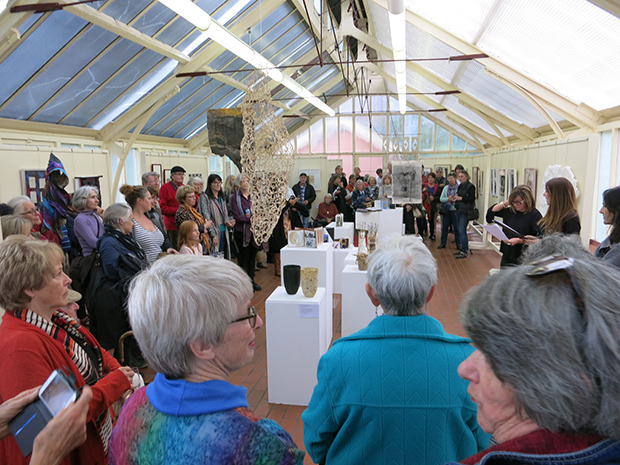The practice of medicine is an art, not a trade; a calling, not a business; a calling in which your heart will be exercised equally with your head.
I wonder if William Osler, writing here in Aequanimitas, knew he was inheriting a hard-wrought gift which Martin Luther had re-discovered during the 16th century.
Five hundred years ago, Luther nailed a letter to the door of a church in Wittenberg, Germany. In it, he listed ninety-five theses regarding the practices and theology of the Roman Catholic Church. His primary concern was that the Roman Catholic Church had wrapped the gospel in a cloak of heresy; he had no intention of breaking away, but instead wished to reform the Church from within. Indulgences, salvation via sacramentalism, and the divine authority of the Pope were all in view of Luther’s criticism. Although others provided sparks and kindling before 1517, the fire of the Reformation began in earnest with Martin Luther and spread to consume Europe and the world. We continue to experience the reverberations of his hammer centuries later and the world over.
The gospel is both wonderfully inexhaustible and amazingly simple. Born of the Reformation, five assertions capture this beauty:
J.I. Packer summarizes these nicely:
Salvation, said the Reformers, is by faith (man’s total trust) only, without our being obliged to work for it; it is by grace (God’s free favor) only, without our having to earn or deserve it first; it is by Christ the God-man only, without there being need or room for any other mediatoral agent, whether priest, saint, or virgin; it is by Scripture only, without regard to such unbiblical and unfounded extras as the doctrines of purgatory and of pilgrimages, the relic-cult and papal indulgences as devices for shortening one’s stay there; and praise for salvation is due to God only, without any credit for his acceptance of us being taken to ourselves. The Reformers made these points against unreformed Rome, but they were well aware that in making them they were fighting over again Paul’s battle in Romans and Galatians against works, and in Colossians against unauthentic traditions, and the battle fought in Hebrews against trust in any priesthood or mediation other than that of Christ.
The Roman Catholic church had nothing against grace, faith, Christ, Scripture, or the glory of God. In fact, it revered all of those. As Packer observes, the “alones” were the stumbling blocks.
By fighting to recognize that salvation is by grace alone through faith alone, Luther helped to reclaim and reform daily life and work to the glory of God. Thus, Osler could recognize medicine as a calling.

One front of resistance Luther established was against clericalism and the division between the sacred and secular as established by the Roman Catholic Church. The priest was perceived to be holier than the common blacksmith because the priest spent more of his time getting closer to God than the blacksmith. Luther grew to abhor this practice:
Surely anyone should laugh in his heart for joy if he finds himself in a station that God instituted or ordained. He ought to shout and dance as he thanks God for such a divine act, because he hears and is assured that his position is full of honour and adornment before God … Now, this means that a servant, maid, son, daughter, man, woman, lord, subject, or whoever else may belong to a station ordained by God, as long as he fills his station, is as beautiful and glorious in the sight of God as a bride adorned for her marriage … But the blind and senseless world will not see this. It despises such stations so shamefully that it makes a pious heart bleed. ‘Never,’ it says. ‘What shall I do with such an unimportant secular station? I will serve God and become a monk or a nun, a priest or a hermit.’ And out of this wisdom there has developed such a lively fanaticism (schwennen) that the world is full of monasteries and institutions of so many different orders and factions, and everything fairly crawls and swarms with spiritual people.
(Estate of Marriage, Vol. 13, 368)
Faith was not embodied most fully in the sacramentalism of the Church, then, but in the practical outworking of the gospel in one’s life and work, whatever one happened to be doing. Because sinners are justified by faith alone, and not also by “righteous acts” (even those that might be most obviously righteous, like participation in sacraments), they are free to cast their anxieties upon God and embrace their daily life and work. Luther wrote:
In this faith all works become equal, and one is like another, and all distinctions between works fall away . . . whether they are great or small, brief or lengthy, many or few. For works are not pleasing on their own account, but on account of faith.
(On Good Works, vol. 44, 26., as cited above)
God’s sovereignty over our lives is presupposed here: God chooses to call us and also place us in the positions in which we find ourselves. If someone is a blacksmith, it is because God chose to make him a blacksmith. It is because God calls a dead man into life through Christ that such a man’s daily life and work can be God-glorifying. He is faithful within his work, not despite his work. This man should thus say:
Although I am an unworthy and condemned man, my God has given me in Christ all the riches of righteousness and salvation without any merit on my part, out of pure, free mercy, so that from now on I need nothing except faith which believes that this is true. Why should I not therefore freely, joyfully, with all my heart and with an eager will do all things which I know are pleasing and acceptable to such a Father who has overwhelmed me with his inestimable riches? I will therefore give myself as a Christ to my neighbour, just as Christ offered himself to me; I will do nothing in this life except what I see is necessary, profitable, and salutary to my neighbour, since through faith I have an abundance of all good things in Christ.
(Luther’s Works, Vol. 31, 364, 366, as cited above)
Ian Hart, the author of the paper cited here, argues that Luther believed in a “static social system of callings” in which one should not seek to change the position into which they’ve presumably been called. This has allowed for abuses throughout history. For example, powerful, white men used similar reasoning to claim that because black people were “called” by God into chattel slavery in the American South, they should not seek their own freedom and others should not seek to abolish that system of slavery, as it was apparently God-ordained. Similar logic was used to subjugate women. Explaining how that reasoning is wrong is a task for another time, but suffice it to say, it was and continues to be wrong. The abuse of the doctrine, however, does not invalidate the doctrine entirely, just as an overdose of a medication does not invalidate its therapeutic use. The risk of overdose does mandate careful use, though.
Further Up and Further InAll work in one’s daily life is done for the glory of God. Being a priest, monk, or nun does not get one any closer to God, and in fact, may draw one further from God. The consecration of one’s work is not a little comfort to ingest along with some chamomile tea at the end of a long day in the clinic or hospital. There are at least three practical ramifications of Luther’s reclamation and reformation of “vocation.”
The Christian clinician’s primary vocation is to follow ChristLuther primarily relied upon 1 Corinthians 7:17-24 to argue that one’s daily job is also one’s calling. He also used this passage to argue that one should remain in the social position one was inhabiting when they came to faith. A far more significant call precedes one’s work: the call to new life in Christ.
Take, for example, Romans 1:6, wherein Paul identifies the Roman church as those “who are called to belong to Jesus Christ.” This aligns with 1 Corinthians 1:9, where Paul writes, “God is faithful, by whom you were called into the fellowship of his Son, Jesus Christ our Lord.” He writes elsewhere, “There is one body and one Spirit – just as you were called to one hope that belongs to your call – one Lord, one faith, one baptism, one God and Father of all, who is over all and through all and in all” (Ephesians 4:4-6). The foundation of one’s identity is belonging to Jesus Christ, in fellowship and unity with him and others he would call to himself. This is more fundamental than identifying oneself as a blacksmith, pastor, mother, or clinician. Being a Christian informs one’s practice of those things, not vice versa; one is a Christian who lives out that call as a clinician, rather than a clinician who lives out that call as a Christian.
One is called from the grave, freed from bondage to sin, picks up their cross, and follows Christ all before one tries to wrestle what this or that means for them as a clinician. When Jesus said, “I am the resurrection and the life. Whoever believes in me, though he die, yet shall he live, and everyone who lives and believes in me shall never die” (John 11:25-26), he said it first to his companions, and then the text speaks to people generally. We must discern what that means for us as mere beggars before God before we try to discern what additional lessons might be there for the clinician specifically, if any.
The Christian clinician is called to good workReminding the Ephesians of the sovereignty of God’s grace, Paul wrote, “For we are his workmanship, created in Christ Jesus for good works, which God prepared beforehand, that we should walk in them” (Ephesians 2:10). A restricted imagination might suggest that such good work is the fulfilling of the Great Commission – making disciples of all nations. Tributaries into this river of good work might include donating money to mission efforts and providing other material support to missionaries. Others may support or serve in ministries that provide material support to the community (e.g., soup kitchens).
While that’s all true, a broader imagination can reach further without losing the things just mentioned. The “good works” Paul mentions are potentially innumerable and that may be why he left them specifically unidentified. A good work is surely dependent not only upon the circumstances, but also the capacity, skill, and proximity of the one for whom it has been prepared. The clinician, then, has good works to do which God prepared beforehand.
Caring for the body is a good work that Jesus embraced. He saw the importance of physical healing, and demonstrated it by healing a man on the Sabbath, asking the scandalized onlookers, “…is it lawful on the Sabbath to do good or to do harm, to save life or to destroy it?” (Luke 6:9). Remarkably, Jesus implies that to leave the man in his current state would be to actually do harm and destroy life. Inaction is not neutral when one has the capacity to act for good – and it is good to ease the suffering of others and bring bodily healing.
Such good work does not occur merely by bringing technical expertise to bear on pathophysiology. The hero halls of medicine are filled with clinicians who do life-saving surgeries or prescribe medications that work almost like magic. Even the more routine aspects of care, like antibiotics for an ear infection or a screening colonoscopy, while good, do not exhaust the possibilities of good works for a clinician. It is a good work not to abandon a dying man to a lonely death, and instead listen to one of his stories before he can no longer speak. It is a good work to hold the hand of a sick person in a way that does not anticipate venipuncture. It is a good work to express gratitude to a colleague.
When the schedule is busy, the paperwork overwhelms, the EMR goes down, the patient is ungrateful, the insurance company balks at the prior authorization, I can sometimes feel my heart turning cold. And then I remember that I am here to love God and love others, and one way I do that is by doing good work as a clinician. This is good work, even when it’s dark, cold, smelly, and frustrating.
The Christian clinician is called to work in the worldThe clinician’s work is earthly work. We care for bodies (and minds, if you want to be dualistic about it; I don’t), and such bodies were made from the dust of the ground (Genesis 2:7). There is no hope of finding God in the work of the clinician by cloistering oneself away like the monastics. If a clinician were to climb all the spiritual mountains in search of God, she would return empty-handed to the bedside of her patient, finding Christ’s presence there instead (Matthew 25:36).
This is not unexpected, given what we know of God. While he called up dust from the ground to make man, he later descended into that dust to minister among the men he made. The very incarnation of Jesus demonstrates that God values earthy embodiment. Nearing the end of his life and praying for his disciples, Jesus implored of his Father, “I do not ask that you take them out of the world, but that you keep them from the evil one. They are not of the world, just as I am not of the world. … As you sent me into the world, so I have sent them into the world. … I do not ask for these only, but also for those who will believe in me through their word” (John 17:15-16, 18, 20). The call of the Christian, and thus the Christian clinician, is not to abandon the world, but to be sent into it just as Jesus was sent into it! To declare good news and also to heal, in word and deed.
This earthliness means that while all the clinician’s work is infused with something sacred, it may not be as we expect. At least, what I often expect are intellectually appealing conundrums, rich and pleasant patient encounters, and bold connections between my work and theology. Sometimes I have those. But the earthly work of the clinician is also found in tending to festering, intractable wounds, abiding unanswered (and unanswerable) questions with the people who ask them, giving someone a drink of water, being steadfast in attending to the needs of someone who is abrasive, and so on.
This also means that the clinician’s response to their vocation, just like all other vocations, must be continually renewed. Being in the world, the clinician is vulnerable to the daily challenges posed by the world to hearing her call to be a clinician. Chief among those challenges, perhaps, is the belief that one’s vocation is received via a beam of light or thundering voice from the sky. That may be the case for a rare few, but for most the call arises by far more ordinary means: a need in the community confronts someone with the capacity and passion to meet it. Every day, the clinician need to respond anew to that call.
Standing between themselves and that call, however, are several types of static identified by Norman Wirzba that deafen us to hearing it. One worth mentioning here is the fact that “contemporary life is increasingly mediated by technology. … What happens in a technological age is that a machine becomes a substitute for attentive, patient, intensive, and refined skills that otherwise develop as the result of socially determined contexts.” Such assertions may immediately conjure thoughts of the EMR, and while that is certainly in view here, so are all other medical technologies from surgeries to medications to clever scripts for building rapport. Clinicians become so enamored with (and deafened by) their use of medical technology that they actually forget why they’re doing what they’re doing, and they lose sight of what health is for.
Despite the risks, Christian clinicians are called to work in this world, and it is a world God loves. We would do well to follow after him.
The Reformed ClinicianDespite what society would want (and what sometimes happens), clinicians are neither the priests of a new religion nor mere scientists pushing lifeless matter around. Osler can identify medicine as a calling because Luther recognized all earthly labors done by those following after Christ as being good, and Luther can make that recognition because God did not abandon this world but chose to save it, by grace alone, by entering into it. God is not somewhere else. He is here in this earthly, tumultuous, bloody, tragic, exciting, beautiful, mundane work.
Advertisements




